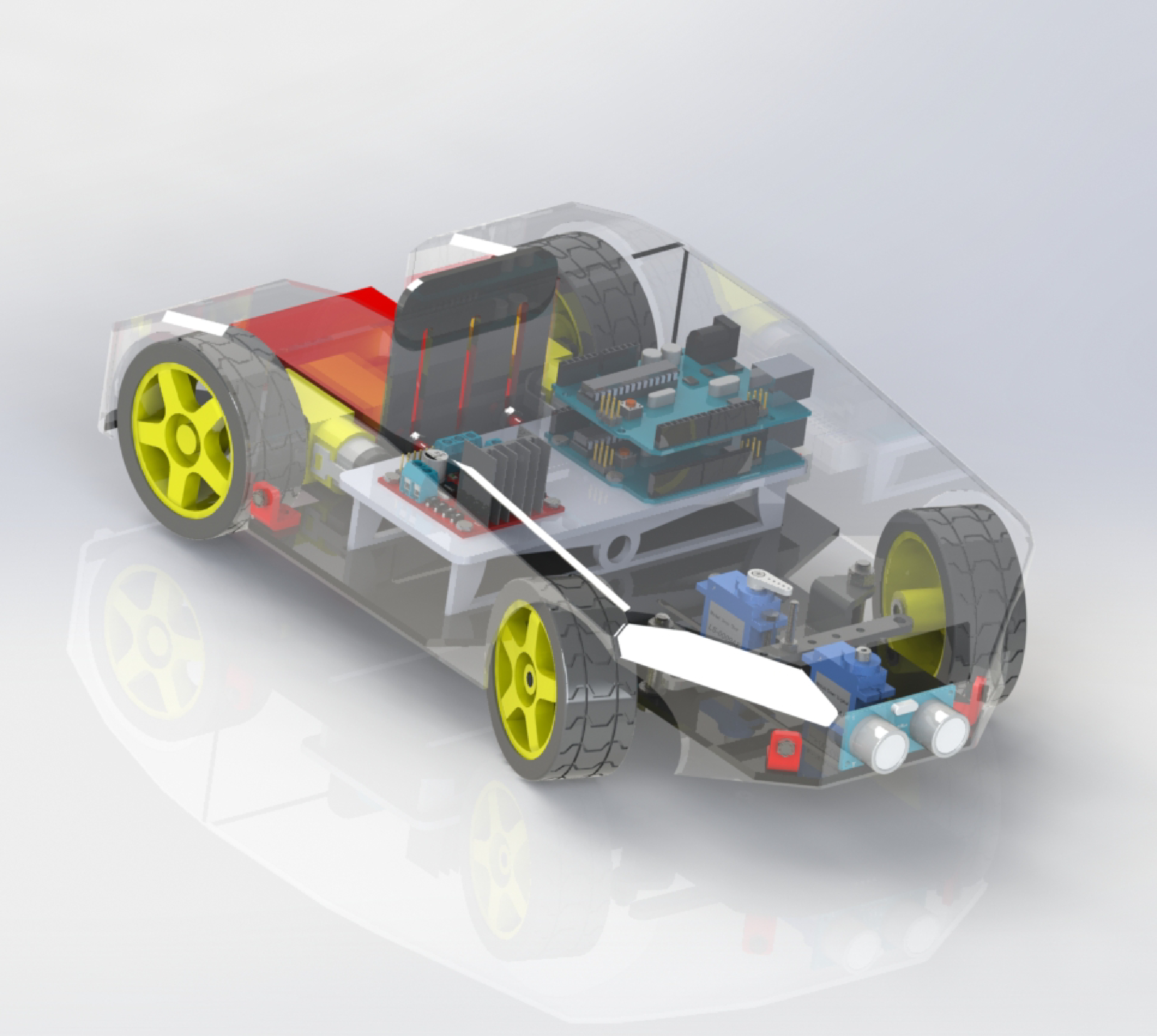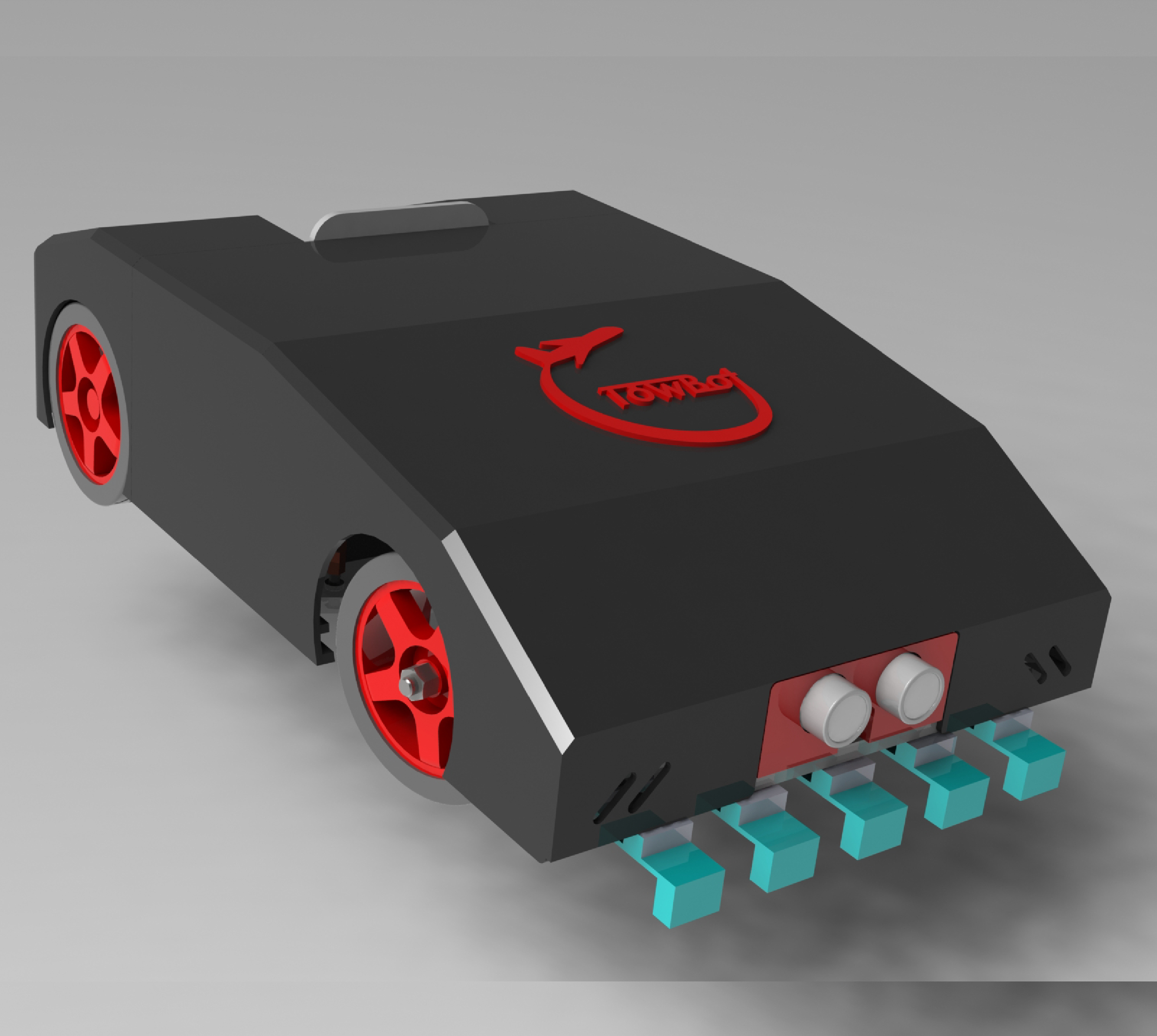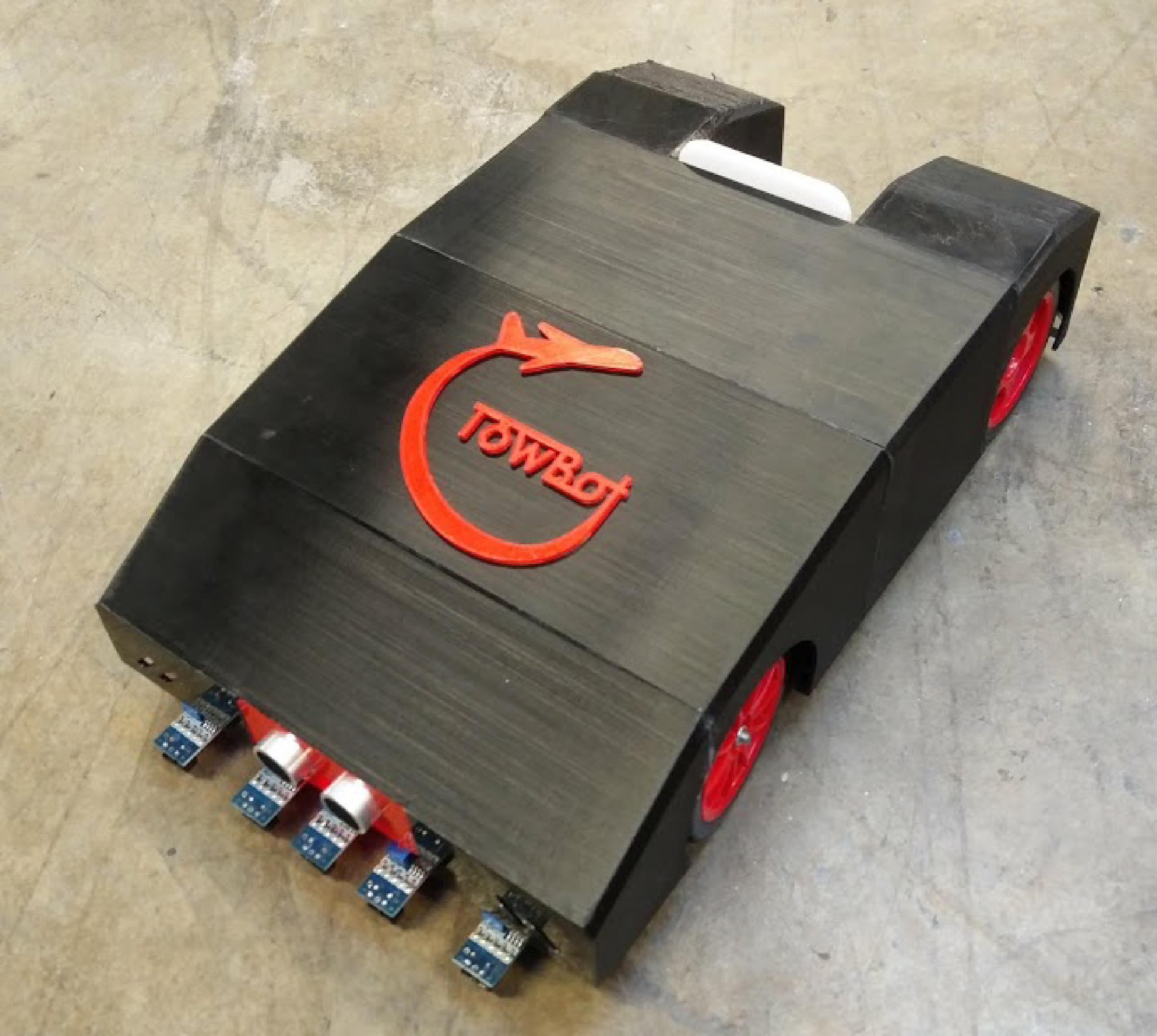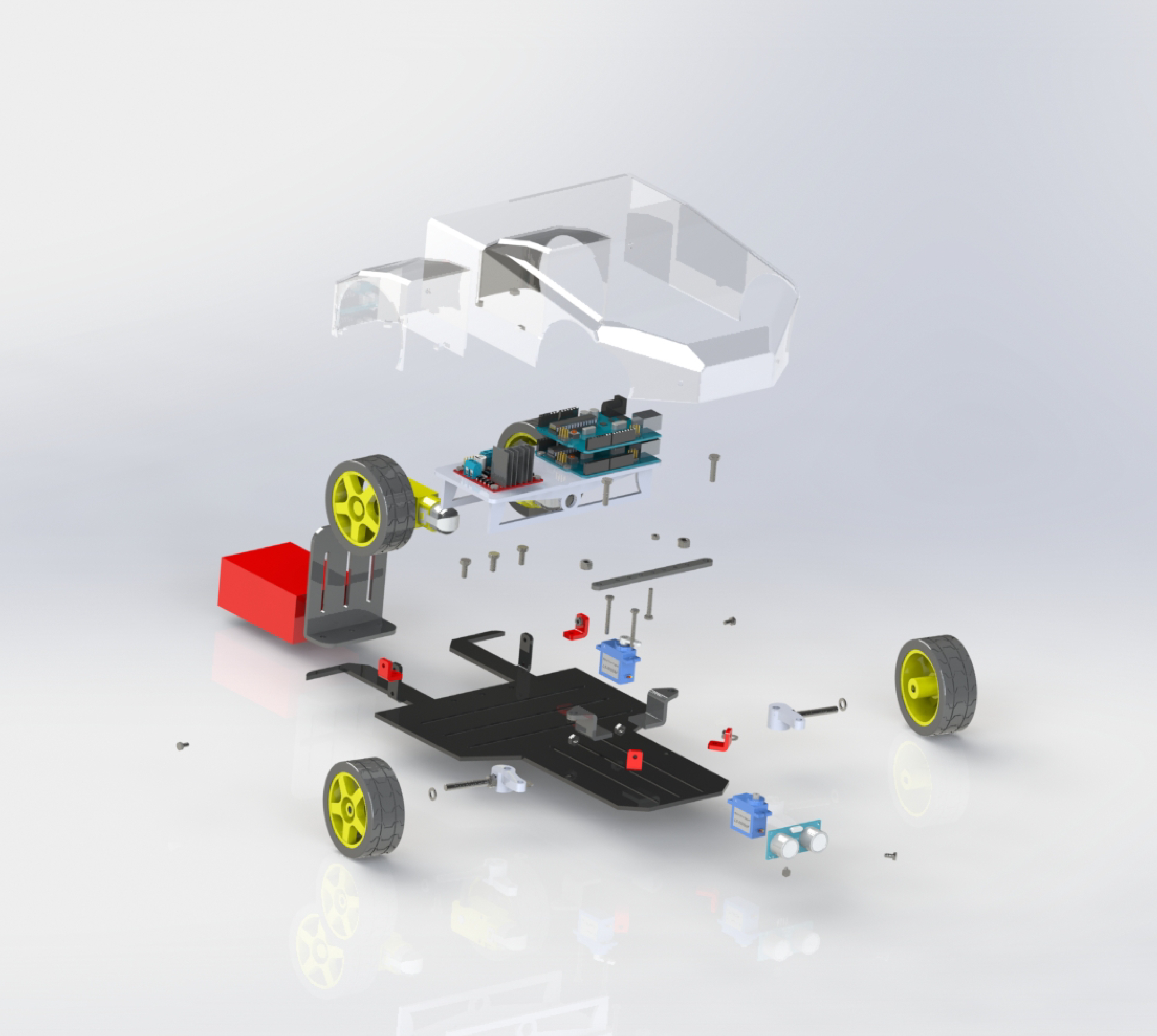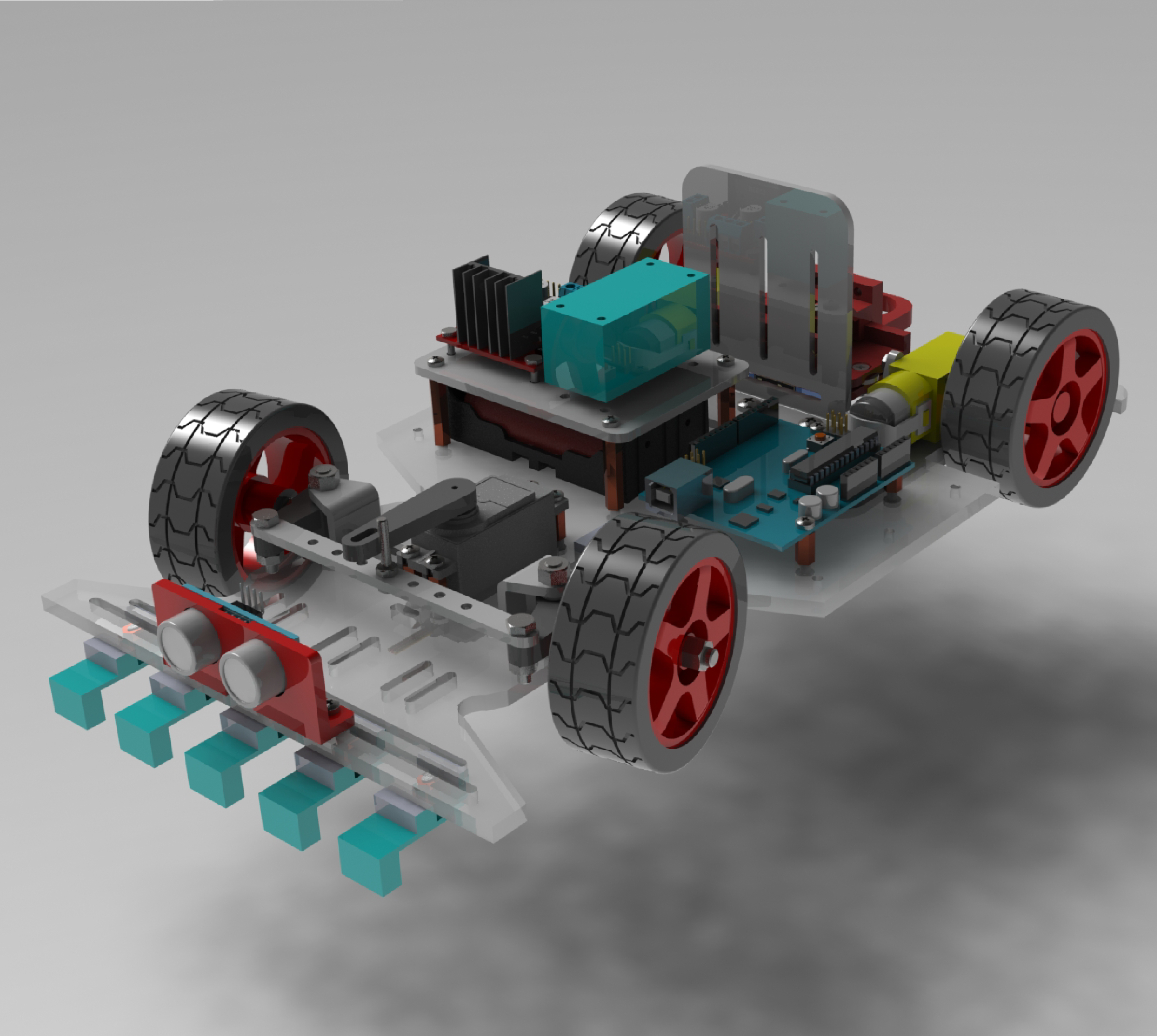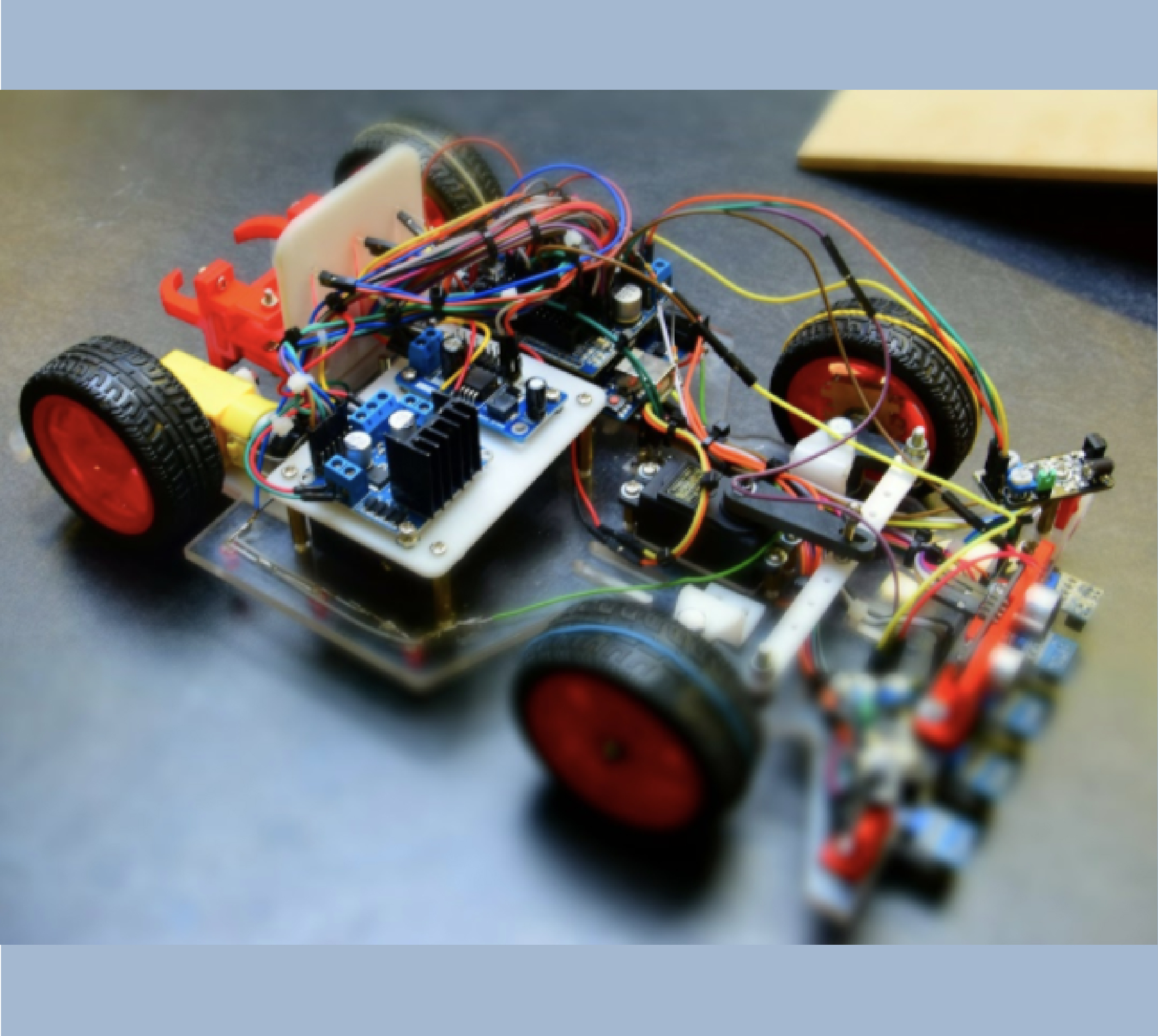Small autonomous vehicle developed as part of a group project in 2017.
Aim
Develop a prototype that demonstrated how electric autonomous vehicles could improve the logistics industry.
Background Research
After much research into all aspects of the logistics industry, it was found that a huge amount of money is being wasted during airplane pushback and taxi operations. ‘Pushback’ is the process of moving the aircraft back away from a gate prior to taxi and takeoff. ‘Taxiing’ is the movement of the plane under its own power on the ground. Ryanair spends €60 million per annum(2017) on avoidable fuel costs due to inefficient pushback operations. When you think of this on a worldwide scale, it is an unnecessarily large waste of money and most of all, extremely harmful to the environment.
When thinking of feasibility, the pushback & taxiing process takes place in the enclosed setting, with relatively controlled surroundings, meaning integration of the autonomous vehicle into it's environment would not be overly disruptive.
Final Solution
An autonomous airplane tug prototype was developed. The motivation behind the design was to maximise efficiency and safety while simultaneously reducing emissions, human error and costs. After many design iterations a 1:26 scale design, was created to demonstrate the key features and technical innovations of the concept.
A combination of CNC machining, 3D printing and vaccum forming were used to create the prototype.
